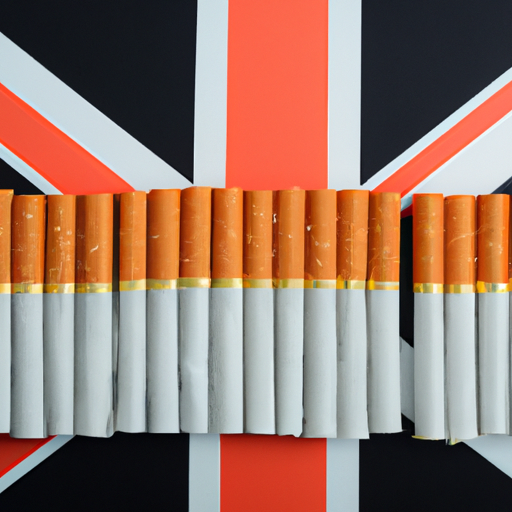
As a lifelong smoker in the UK, cigarettes have been a constant companion in my life. However, as I reflect on my relationship with these seemingly harmless sticks of tobacco, I cannot ignore the glaring reality – they are slowly killing me.
Growing up in the UK, cigarettes have always been readily available. With the iconic red and white packaging and familiar brand names like Marlboro and Camel, they were a common sight in the hands of adults around me. As a curious teenager, I couldn’t resist the allure of trying my first cigarette. Little did I know, that one puff would eventually lead me down a path of addiction and harmful health consequences.
For many years, smoking was seen as a glamorous and socially acceptable activity. It was a symbol of sophistication and rebellion – the epitome of James Dean cool. However, this perception has shifted drastically in recent years. With the growing awareness of the dangers of smoking, it is now seen as a dirty and unhealthy habit. As a result, the UK government has implemented numerous measures to discourage smoking, such as banning indoor smoking in public places and increasing taxes on cigarettes.
One of the main arguments against smoking is the impact it has on one’s health. It’s no secret that cigarettes are filled with thousands of harmful chemicals, including nicotine, tar, and carbon monoxide. These substances not only damage the lungs, but they also increase the risk of developing heart disease, stroke, and cancer. As a smoker, I am fully aware of these risks, yet I continue to light up a cigarette after a stressful day or in social situations. It’s a habit that has taken control of my life, and breaking free from it seems like a daunting task.
But it’s not just the long-term health effects that are concerning. Smoking also has immediate consequences, such as bad breath, yellowing teeth, and an increased risk of respiratory infections. As a heavy smoker, I have experienced all of these firsthand. Despite my efforts to mask the smell with breath mints and mouthwash, the stale stench of cigarettes always seemed to linger. It’s a constant reminder of the damage I am doing to myself.
Aside from the health implications, smoking also takes a toll on one’s finances. As a pack-a-day smoker, I spend over £10 a day on cigarettes. That’s over £3,600 a year – a significant amount of money that could be used for more important things like paying off debts or going on holiday. Yet, I continue to justify this expense, convincing myself that a pack of cigarettes is a small price to pay for my temporary satisfaction.
Another aspect of cigarettes that often goes unnoticed is their impact on the environment. Every year, millions of cigarette butts end up on the streets, beaches, and parks, polluting the environment with toxic chemicals. The production of cigarettes also contributes to deforestation and air pollution. As a smoker, I am guilty of contributing to this ongoing global issue, and it weighs heavily on my conscience.
Despite all of these negative aspects, I must admit that there are still moments when I enjoy smoking. It’s a ritual that has been ingrained in my daily life, and the act of lighting a cigarette and taking that first drag brings a sense of comfort and familiarity. It’s something I do when I’m stressed, celebrating, or simply craving a nicotine hit. But as I have gotten older, I have come to realize that these moments of pleasure are outweighed by the long-term consequences of smoking.
With the rise of social media and the ease of access to information, it’s impossible to ignore the harmful effects of smoking. Advertisements featuring graphic images of lungs blackened by years of smoking and campaigns highlighting the dangers of secondhand smoke have made it impossible for anyone to turn a blind eye. It’s no longer just a personal choice – smoking has become a public health issue that affects not only the smoker but also those around them.
In recent years, there have been numerous efforts to discourage smoking in the UK. Tobacco advertisements have been banned, packaging is now plain and unappealing, and smoking in public places is prohibited. The government has also launched campaigns to help smokers quit, providing resources such as quit kits, nicotine replacement therapy, and counseling services. While these efforts have led to a decline in smoking rates, it’s clear that more needs to be done to eradicate this harmful habit completely.
In conclusion, as I sit here with a cigarette in my hand and a heavy heart, I cannot help but feel regret for the years I have spent damaging my health and contributing to the destruction of the environment. Cigarettes may have been a constant presence in my life, but I am determined to break free from their hold. I urge anyone reading this to reconsider their relationship with smoking. It’s a tough battle, but the health and financial benefits of quitting far outweigh the temporary satisfaction of lighting up a cigarette. Let’s make a change and create a smoke-free environment for ourselves and those around us.